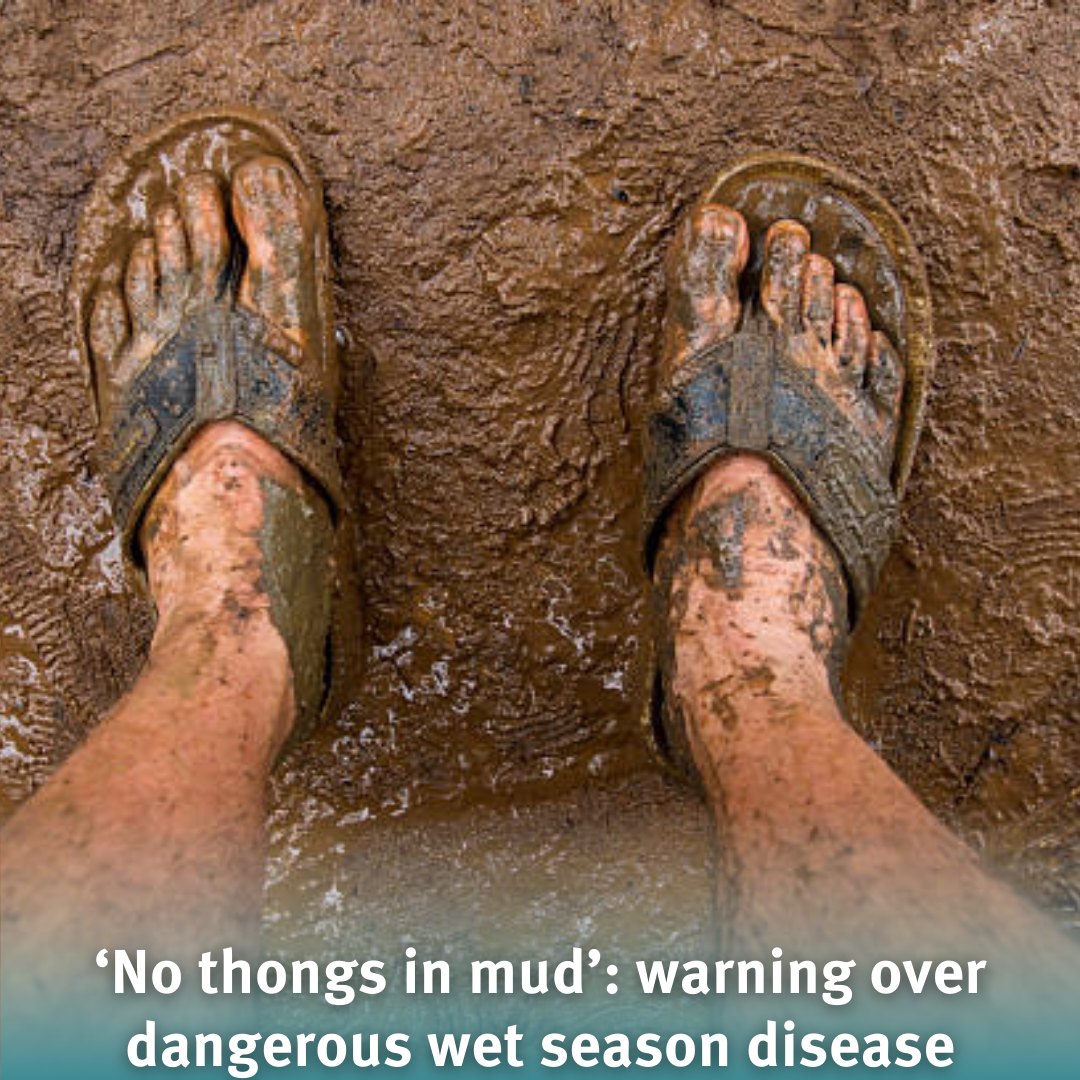
HEALTH WARNING: 9 deaths and 53 impacted by ‘mud disease’ melioidosis
HEALTH WARNING

FAR North Queenslanders are being reminded to stay alert to symptoms of a dangerous seasonal disease, with cases of melioidosis continuing to climb in the Cairns region.
The Cairns and Hinterland Hospital and Health Service has recorded 53 cases of melioidosis since 1 January 2025, including, a total of 9 patient deaths.
Tropical Public Health Services director Dr Jacqueline Murdoch said her team was still investigating the cause of the disease spike, with the majority of cases occurring in Cairns’ southern corridor.
“Heavy rainfall can bring disease-causing bacteria Burkholderia pseudomallei into surface water and soil,” Dr Murdoch said.
“We are yet to pinpoint exactly why we are seeing so many cases now, and there is likely to be many factors at play.
“The people who are at most risk of serious illness are those with underlying health conditions like diabetes, kidney problems, lung problems, and people on medication that lowers their immune system.”
“People with pre-existing health conditions need to take special precautions.
“If you are immunosuppressed and you develop a chest infection or fever, it’s important to seek medical assistance.”
Dr Murdoch said the disease could occur when skin abrasions or wounds came into contact with wet soil or water, or by breathing in dust or droplets, especially during storms or spray from high pressure hoses.
“Melioidosis is very uncommon in healthy adults, and rarely seen in children, but can occur in people with diabetes, kidney problems, lung problems, people who have heavy alcohol consumption, and people on medication that lowers their immune system including cancer treatment,” she said.
“Symptoms of acute melioidosis may include fever, cough and difficulty breathing; the effects can be very severe and often require hospitalisation for antibiotic treatment.
“Sometimes the disease presents as superficial skin infections or abscesses in various part of the body.
“If anyone has noticed non-healing wounds or persistent fevers over several weeks, then they should be seen by their GP and checked for this infection, as it can require prolonged antibiotic treatment.”
Dr Murdoch encouraged those at risk to stay indoors during heavy rain and storms.
“If you are working outside, wear protective footwear and gloves,” she said.
“Wash your skin thoroughly after exposure to soil or muddy water.
“Wear a mask if you’re using a hose or high-pressure cleaner around soil.”
You can learn more about melioidosis by calling 13 HEALTH (13 43 25 84) or visiting www.qld.gov.au/health/condition/infections-and-parasites/bacterial-infections/melioidosis
Support public interest journalism
Help us to continue covering local stories that matter. Please consider supporting below.
Got a news tip?
Send a news tip or submit a letter to the Newsport Editor here.
Comments
Comments are the opinions of readers and do not represent the views of Newsport, its staff or affiliates. Reader comments are moderated before publication to promote valuable, civil, and healthy community debate. Visit our comment guidelines if your comment has not been approved for publication.